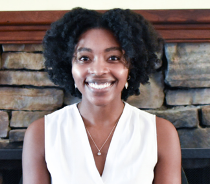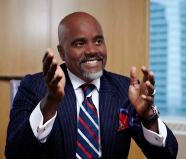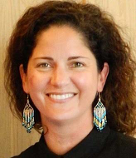Main Second Level Navigation
- Welcome
- Why Toronto?
- History of the Department
- Vision & Strategic Priorities
- Our Leadership
- Our Support Staff
- Location & Contact
- Departmental Committees
- Department of Medicine Prizes & Awards
- Department of Medicine Resident Awards
- Department of Medicine: Self-Study Report (2013 - 2018)
- Department of Medicine: Self-Study Report (2018 - 2023)
- Communication Resources
- News
- Events
Chair's Column: The World in Turmoil - What is the DoM’s role in addressing anti-Black and anti-Indigenous racism?

Gillian Hawker
 As protests against anti-Black racism, racial violence and police brutality take place in the United States, Canada and countries around the world, universities, medical societies and business, political and academic leaders have expressed solidarity with the Black community, denouncing anti-Black racism and discrimination in all forms. At the same time, anti-Indigenous racism continues to plague the Indigenous communities of Canada. It is devastating and painful to witness and, clearly, unacceptable.
As protests against anti-Black racism, racial violence and police brutality take place in the United States, Canada and countries around the world, universities, medical societies and business, political and academic leaders have expressed solidarity with the Black community, denouncing anti-Black racism and discrimination in all forms. At the same time, anti-Indigenous racism continues to plague the Indigenous communities of Canada. It is devastating and painful to witness and, clearly, unacceptable.
Anti-Black and anti-Indigenous racism is not new.
As a white physician, I have not personally experienced the injustices that medical students, residents, fellows and faculty in these communities experience every day. Over the past weeks, we have, however, been given first-hand accounts of these experiences.
 Dr. Chika Oriuwa gave a powerful account of her journey as the only Black medical student in her U of T class in her valedictorian speech last week.
Dr. Chika Oriuwa gave a powerful account of her journey as the only Black medical student in her U of T class in her valedictorian speech last week.
A recent piece in the Globe and Mail, written by Wes Hall, a business executive and Director of the SickKids Foundation, was also elucidating and compelling. It was entitled When I look in the mirror, I see George Floyd – and so do others.
Hall said:
“Those individuals who perpetuate the cycle of racism and hate, like the ones who killed Mr. Floyd, would not have cared if he went to the University of Toronto, if he lived in Rosedale or if he worked on Bay Street. Just that he was Black. What would the response have been if Mr. Floyd had been a 46-year old blond, blue-eyed woman?
"Would we allow the scene – of a police officer crushing this woman’s neck with his knees for almost nine minutes, to the point where she was begging for air, gasping, pleading and eventually urinating on herself – to be played over and over again like the murder porn that the video of Mr. Floyd has become? If that makes you uncomfortable, it should. […]
"I often hear that things like this don’t happen in Canada. But speak with any Black person in Canada and they will share their many encounters with anti-Black racism. I live in the Rosedale neighbourhood in Toronto. I was out for a walk recently and saw an elderly white woman fall. I was hesitant to help her because I was concerned she would be startled by a Black man helping her, or that the neighbours would call the police on a Black man standing over an elderly white woman. How many white men would think this way?”
 Hall makes the point that our social and political systems were set up historically to “protect” white slave owners from Blacks.
Hall makes the point that our social and political systems were set up historically to “protect” white slave owners from Blacks.
“Today, that system remains in place but just disguised a little better so as not to make those who benefit from it uncomfortable,” he writes. “Socio-economic shackles dictate what health care and education Blacks can get. Racial and ethnic biases influence the way in which the law will be applied.”
Sadly, the same can be said about the systems that we in Canada have created, in a different way, to "protect" Indigenous communities. In essence, he argues, it’s not necessarily that the people are racist, but rather that the system is.
We are the largest department of medicine in Canada and thanks to a myriad of reasons, we are privileged. We are also predominantly white. In the 2017 Faculty Survey, 60% of our faculty identified themselves as such. This grants an additional privilege to many of us not to be judged by the colour of our skin, or to have our credentials, expertise and role as physicians second-guessed. Using our privilege, it is our responsibility to address these inequities.
Although I do not have complete data for our faculty or residents, or applicants to our residency programs, I do know that we have only a handful of self-identified Black and Indigenous physicians amongst us. Just as we have argued that we need more women in leadership roles as their lived experiences help us to make better decisions, be more innovative, and achieve even greater academic success, we need to enhance our racial diversity as well.
Our department has repeatedly confirmed its vision for to build a culture of caring and inclusion and, I hope, we have helped to educate about the benefits of a diverse workforce and the negative impacts of unconscious biases. We have expressed solidarity with the Black and Indigenous communities, denouncing racism and discrimination in all forms. But talk is easy. We need concrete actions to elicit change.
 We are therefore fortunate to have an Indigenous leader, Dr. Lisa Richardson, as our Department of Medicine Vice-Chair of Culture and Inclusion. As you may know, Lisa is an active member of the Indigenous Physicians’ Association of Canada and chairs the Indigenous Health Committee at the Royal College of Physicians and Surgeons. Thanks to her leadership at the Royal College, over the next few years, every subspecialty program in Canada will be expected to teach about Indigenous cultural safety and anti-racist practice along with having accreditation requirements related to recruitment and retention of Indigenous learners, staff and faculty.
We are therefore fortunate to have an Indigenous leader, Dr. Lisa Richardson, as our Department of Medicine Vice-Chair of Culture and Inclusion. As you may know, Lisa is an active member of the Indigenous Physicians’ Association of Canada and chairs the Indigenous Health Committee at the Royal College of Physicians and Surgeons. Thanks to her leadership at the Royal College, over the next few years, every subspecialty program in Canada will be expected to teach about Indigenous cultural safety and anti-racist practice along with having accreditation requirements related to recruitment and retention of Indigenous learners, staff and faculty.
With her guidance and passion, here is the Department of Medicine’s commitment to you:
- Address the under-representation of Black and Indigenous faculty and learners:
- We will continue to implement and refine our Black and Indigenous student CaRMS pathways to enhance the diversity of our resident community.
- We will make serious efforts to identify potential Black and Indigenous candidates for recruitment, promotion and leadership appointments
- We will establish a mentorship/sponsorship program for Black and Indigenous learners and faculty in the Department of Medicine to assist in their career development and success, and to build a cadre of future medicine leaders; and
- We will invite young faculty from these communities to serve as members of the department’s Executive Committee.
- Education: We commit to educating our faculty, including our department leadership, and learners, about anti-Black and anti-Indigenous racism and anti-racist practice through platforms like City-Wide Medical Grand Rounds, leadership training and resident Academic Half Days;
- Address racist and prejudiced behaviours: We will support our faculty and learners to bring forward (in safe and confidential ways) their experiences with anti-Black racism, or racism in general, and will document these instances and report on them to you in aggregate;
- Enhance wellbeing: We recognize the additional stress experienced by Black and Indigenous learners, staff and faculty, and we are committed to supporting their wellbeing with access to culturally responsive mental and psychological support.
Complacency is not an option. Please work with us to make our department, our University and our communities more kind, more caring, more diverse and more inclusive.
(Lead image photo credit: kgnixer/Flickr)
